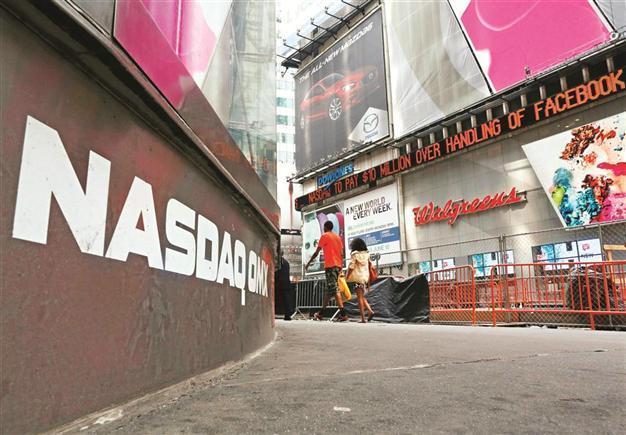Nasdaq to pay $10 million fine over Facebook case
WASHINGTON - The Associated Press

The Nasdaq logo is seen on the exterior of the Nasdaq MarketSite in New York in this file photo. REUTERS photo
Nasdaq has agreed to pay a $10 million penalty to settle federal civil charges after regulators said its systems and decisions disrupted Facebook’s public stock offering last year.
The Securities and Exchange Commission said on May 29 that the penalty is the largest ever imposed against an exchange. Nasdaq also has had to pay $62 million in reimbursements to investment firms that lost money because of the problems.
Facebook launched its initial public offering on May 18, 2012 amid great fanfare. But computer glitches at Nasdaq delayed the start of trading and threw the launch into chaos. The technical problems kept many investors from buying shares that morning, selling them later in the day or even knowing whether their orders went through. Some said they were left holding shares they didn’t want.
The SEC says a design flaw in Nasdaq’s systems was to blame and Nasdaq officials then made a series of “ill-fated decisions.”
Nasdaq neither admitted nor denied wrongdoing.
The Facebook IPO was widely anticipated and one of the largest in history. The social network was valued at more than $100 billion when it went public for $38 a share.
Nasdaq violated market rules by being poorly prepared for the launch, the SEC said. Exchanges have an obligation to ensure that their systems and contingency plans are strong enough to manage an IPO without disrupting the market.
The SEC said Nasdaq officials believed they had fixed the design flaw by removing a few lines of computer code and opted not to delay the start of trading in Facebook. But they failed to understand the root cause of the problem, the SEC said.
The $10 million penalty had been expected. Nasdaq said last month that it might have to pay that amount to resolve the matter with regulators.
In its administrative order issued on May 29, the SEC also censured Nasdaq. Censure brings the possibility of a stiffer sanction if the alleged violation is repeated.
